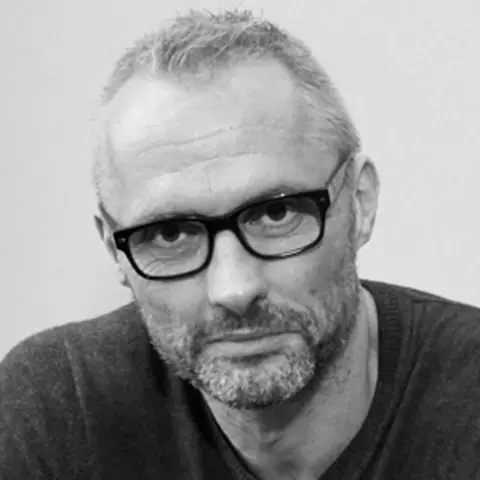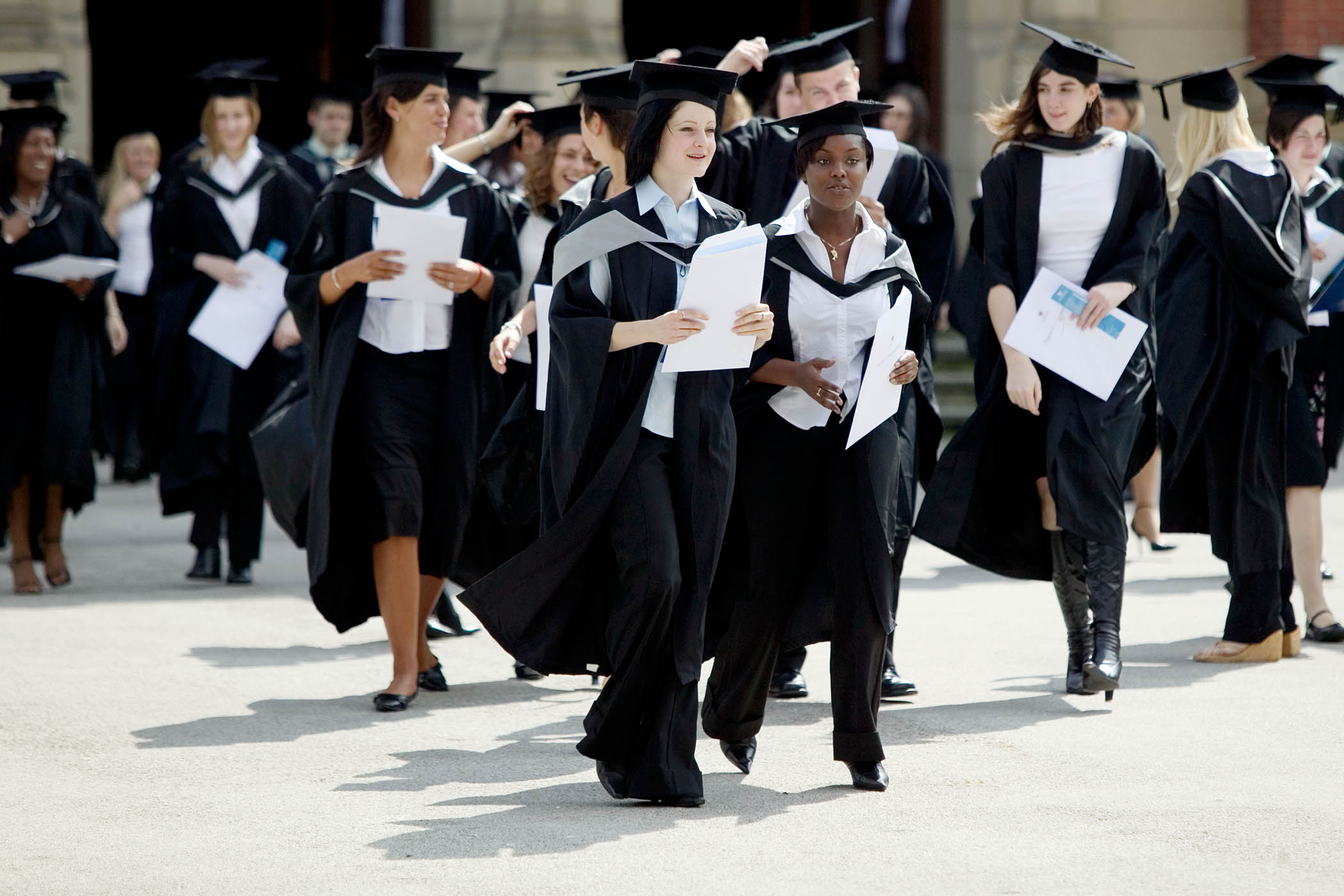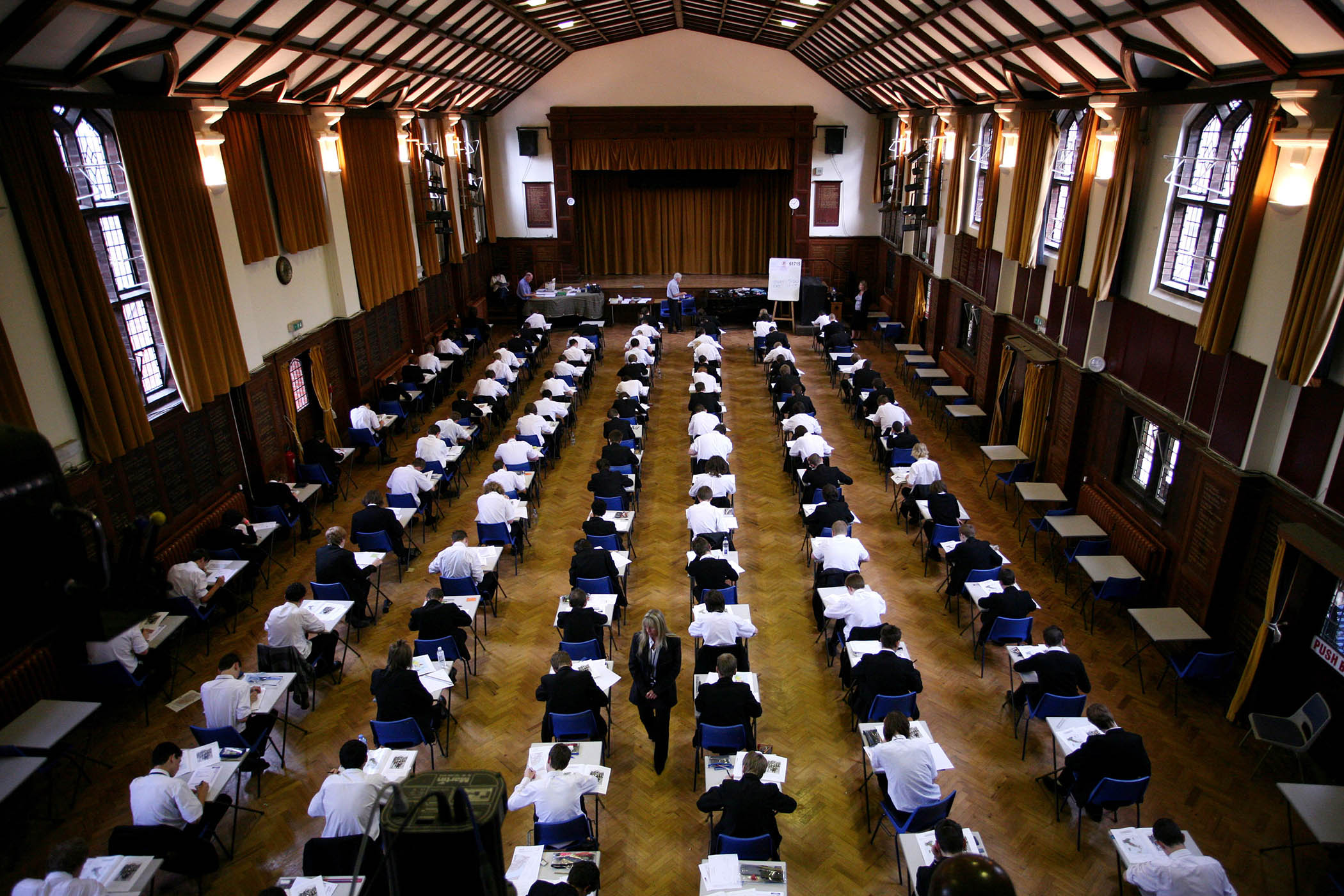Portraits by Lorna Roach, Sonja Horsman and Gary Carlton
By most measures, this year’s bumper crop of A level grades were astonishingly good news for a year group who had been at secondary school for a year when the pandemic hit. The proportion of candidates reaching top grades has risen for the second year in a row, with record numbers securing university places: from more than 1.1m entries in England, 28.2% gained an A or A* grade, while 9.4% gained the top A* grade — up from 25.2% and 7.8%, respectively, before the Covid-19 pandemic.
But this year sees student loans increase, lumping more debt on these young hopefuls, and some inequalities remain stubbornly in place – wealthier areas gained higher grades and some groups, like white working-class boys, are underrepresented in higher education.
The three students The Observer spoke to were clear-eyed about their future and their choices. All had done well – but I’m struck by the selflessness of their ambitions. These were three kids picked purely on the grounds that they’d achieved the grades they needed: but there was so much more to what they said.
Naz Hasan, 18, whose Kurdish Iraqi parents fled Baghdad in the 1990s, secured A* in biology and psychology and an A in chemistry at Bosworth School in Northampton. She starts medical school in Leicester in September.
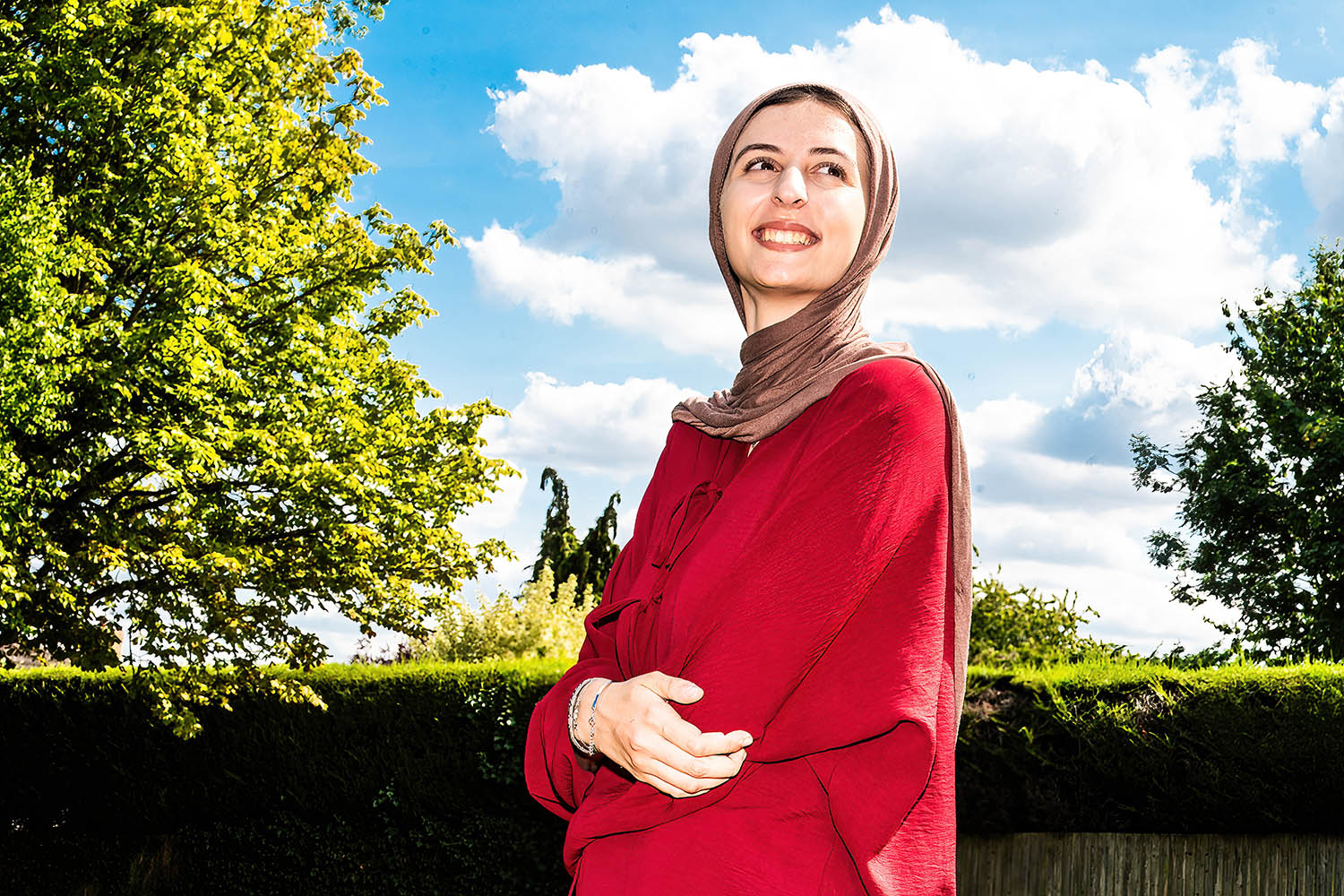
Naz Hasan, 18, at her home in Northampton.
“Both my parents are in the NHS, and they both really enjoy not just the work itself but also the principles of it, because at the core, you’re helping people,” she says. “That’s the whole point of your job, which is a big thing for me. I would want to work in a system which aligns with my morals.”
The NHS is such an amazing thing and the concept is so selfless, so I want to work there
The NHS is such an amazing thing and the concept is so selfless, so I want to work there
Naz Hasan, 18
Her parents have been saving to help with her expenses, and she plans to get a job while studying but she will be taking money from Student Finance. Recently, some medical students have struggled to find work after graduating, which is a concern.
“But in five years, I’d hope things would change,” she says cheerfully. “It’s been a pretty rough 10 years for the NHS but I’m going to try to be optimistic. Some people who are the same age as me are planning to move abroad. But I really do think the NHS is such an amazing thing, and I think the concept of it is just so selfless, so I want to work there.”
Mahir Ahmed, 18, earned A* in maths and computer science, an A in physics and a B in further maths. “Further maths is really hard,” he admits. “It’s a whole other level.” He starts a degree apprenticeship with Rolls Royce in Derby, something Leeds Mathematics School, where he took his exams, put him on to.
“Almost all of my friends are going to uni, and I thought about it, but the benefits of degree apprenticeships include a salary of £22,300 a year – which means I can pay my own rent,” he says.
Newsletters
Choose the newsletters you want to receive
View more
For information about how The Observer protects your data, read our Privacy Policy
I’ve been revising every evening since sixth form started
I’ve been revising every evening since sixth form started
Mahir Ahmed, 18
He lives with his mum and brother, and she was made redundant recently so it’s a relief to him that he doesn’t have to ask her for money as a student. He applied for a bursary and mentorship programme for low-income families worth £10,000 from the Bank of England. It involved a gruelling series of interviews and exams and he was the only one of his group of applicants to secure the bursary.
“I think I’m quite a slow and methodical learner, so I’ve been revising every evening since sixth form started,” he says. That should stand him in good stead at Rolls Royce where he’ll work a 37-hour week while doing a full day at Derby University every Monday. His ambition? To design and build hydrogen engines.
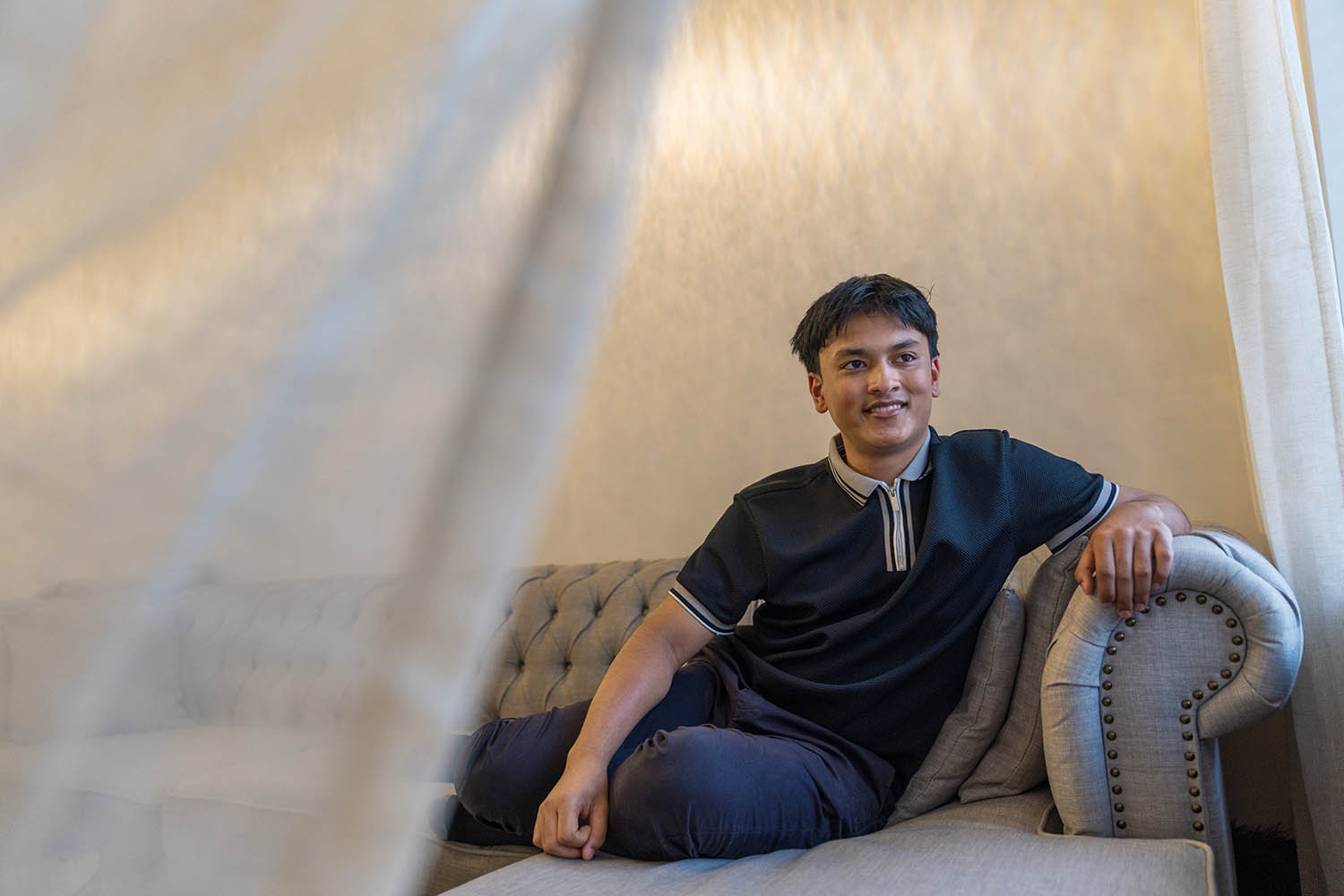
Mahir Ahmed, 18, at home in Birstall, Leeds.
Elliot Peter, 18, is the first of his family to go to university. The son of a postman and a supermarket worker, he achieved A* in biology, physics and chemistry at Ousedale Academy in Newport Pagnell and will start at Christ Church college Oxford in September studying biology. “I set my sights on Oxford around my GCSEs, when I realised I had the potential,” he explains.
It meant filling his free periods with extra study and revision before he would head to the gym after school, eat and get back to studying. “That was consistently every day for the full two years,” he says, simply. “That means you're always up to date with where you are in your plan. I think it was the consistency that prevented me from having to stress and cram as I got towards the actual exams.”
I set my sights on Oxford when I realised I had the potential
I set my sights on Oxford when I realised I had the potential
Elliot Peter, 18
He wants to specialise in genetics and immunology. “Diseases or genetic disorders,” he says. “No matter what the student debt is, this is what I want to do, so it's worth the sacrifice if I know that this is what's going to give me the best shot of being where I want to be in the field I want.”
So much for the notion that young people are divorced from a sense of the wider society in which they live – or in which they want to live, and can contribute to.
Naz explains: “Most of the kids my age I know want the community or the environment they're in to be a positive place to be,” she says. “Somewhere that they don't feel like they're being judged or victimised. So I guess that’s what we’re all trying to do.”

